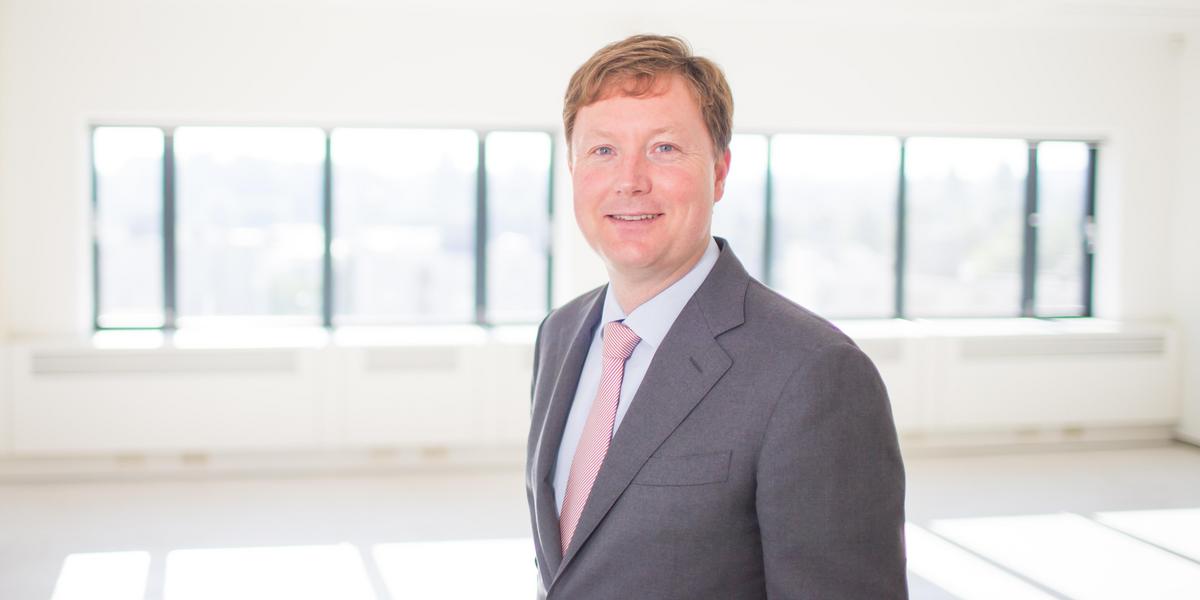First in our series of entrepreneur interviews: Ferdi Kramer, founder and partner of Rembrandt Mergers & Acquisitions in the Netherlands. How has doing business internationally shaped his company? ´You have to have a plan and stick to it.´

Why did you start your own company?
“Back in 2000, I wanted to start my own business. So I quit my job and started working on a business plan. That was the beginning of Rembrandt M&A. I still believe in the fundamentals and we still stick to the plan.”
Was getting international business part of it?
“Not at all! That just happened, the Netherlands is a very open economy. A surprisingly large number of Dutch companies have businesses abroad, and in far-away places too. So it did not take long before we were asked to set up our first transnational deal."
What part of your business is international?
“Roughly: twentyfive percent of our business cases. But international M&A’s tend to be larger than deals within the Netherlands.
Do you hire international staff?
“No. We still have a strong focus on our home market. A large part of our customers are small or mid-size family-owned businesses. Which means our consultants have to be fluent in primarily Dutch.”
Which countries do you get most international business from?
“The USA, Germany, Sweden, Spain, Italy...”
´You have to have a plan and stick to it´
Which countries is it difficult doing business with?
“In the UK or in the United States I sometimes feel at a slight disadvantage. That’s a language issue and you have to remain confident. There are cultural differences too. The Swiss are very serious about quality. But once they see our track record, we get their trust. Personally, I had to get used to negotiating in Italy. Italians don’t shy away from being theatrical. Once you realize that loudly proclaimed deal-breakers are part of the game, you’ll be fine.”
Any more things to keep in mind?
“Legal differences can be an issue too. I remember a Swedish acquisition that almost got stuck because we had a different understanding of the term ‘subordinated loan’. Not until we had a good talk with our Swedish legal counsel, did we understand where things went wrong!”
What are the benefits of working internationally?
“The deals are bigger. Plus our people enjoy it. Meeting other people, the dynamics. An international deal is always a challenge. I used to emphasize working extremely rational: making video calls, that kind of thing. Now I just fly over to meet people. That is important for the negotiations to go well. I like this soft side of the business.”
Any downsides?
“I already mentioned that language can be a setback. That’s why our new consultants get trained speaking proper English. No matter how long they have worked abroad: they all have to take these courses.”
How do international companies find you? You are but a small company in a tiny country.
“Often it is a coincidence: there may be a Dutch guy working on the board of directors of a Swiss company. Or people Google us. But many international assignments are network related. We don’t do any advertising. If a company enquires after our services, I send them our fees first. If they are still interested, we meet. I hate wasting time."
Which international network do you find helpful?
“We are part of MidCap Alliance. Together our reputation is immaculate. Rembrandt M&A is also part of the Rabobank Group. They have a strong international banking network.”
What are difficult markets to work in?
“Because of their sheer size: China and the US. Try finding the right buyer for a company in China! Without local knowledge, that’s next to impossible. And working in the east-coast of the US you need a different network then in the west-coast.”
´International business should never be a risk to your company´
Is it more easy within the European Union?
“Having one currency helps! Imagine a deal that involves future payments: having to make allowances for currency rates can really complicate things.”
What makes starting an overseas office difficult?
“Knowing where to start. Many companies just follow their clients abroad. In Germany and the United States it is important to establish a presence. American customers want you to have a local office. You can try a greenfield start: rent an office, hire staff, hope for the best. There are not many agencies around to help.”
Do you have any tips for entrepreneurs that want to expand abroad?
“You need to have a plan! Think it through, hire consultants, do your homework. Otherwise you may be in for an expensive lesson. If you grow too fast, things can go wrong. That almost happened to a Dutch cosmetics brand. Within a two-year period, they started in eight new countries. The costs were huge and almost got them killed. Now they work with a strict set of expansion rules. They have shops in over twenty countries and are growing fast. Entrepreneurs can learn a lot from cases like these.”
Is international business an adventure?
“I understand what you are trying to say. I think you are partly right, because it’s dynamic and fun. But it should never be a risk to your company. You have to have a solid plan and stick to it. You don’t want to unknowingly break some IP-rules and end up paying fines. Better do your homework.”
About Ferdi Kramer
Ferdi Kramer is founder and partner of Rembrandt Mergers & Acquisitions in the Netherlands. Rembrandt M&A provides corporate finance services for large, mid-sized and smaller family owned businesses looking for a solution for their succession, and for entrepreneurs expanding their businesses.
Employing a staff of thirty and with offices in Amsterdam, Rotterdam and Eindhoven, Rembrandt M&A concludes about forty to sixty transactions per year.
